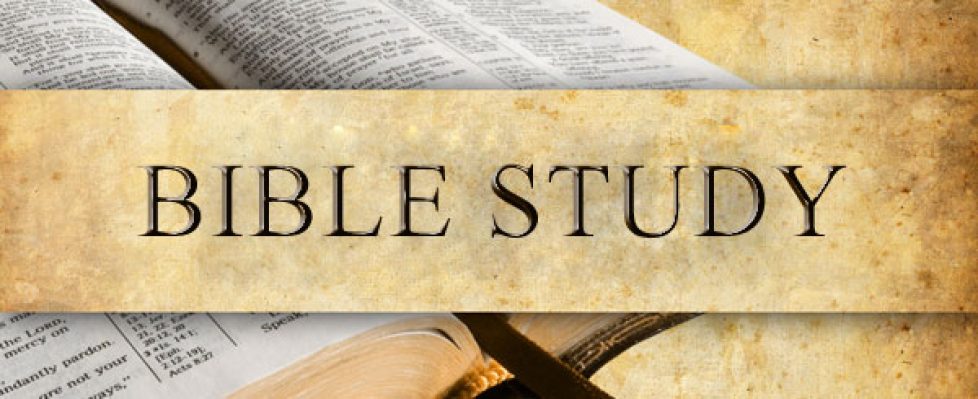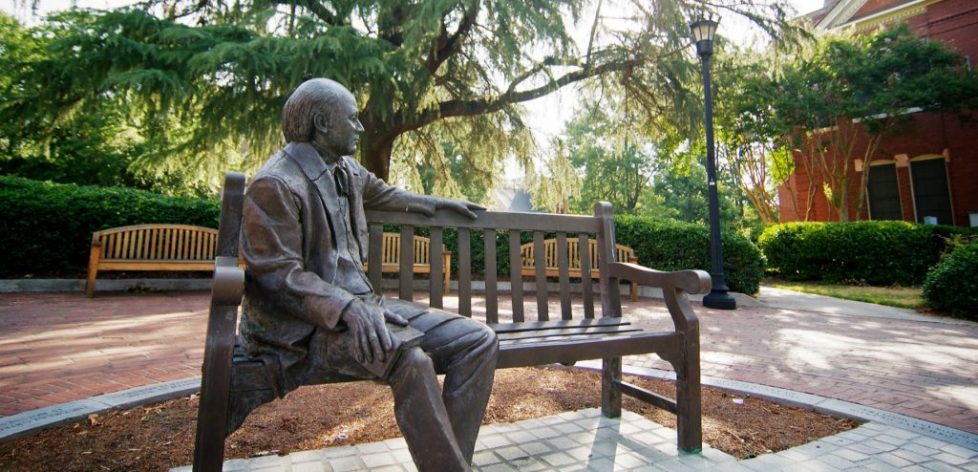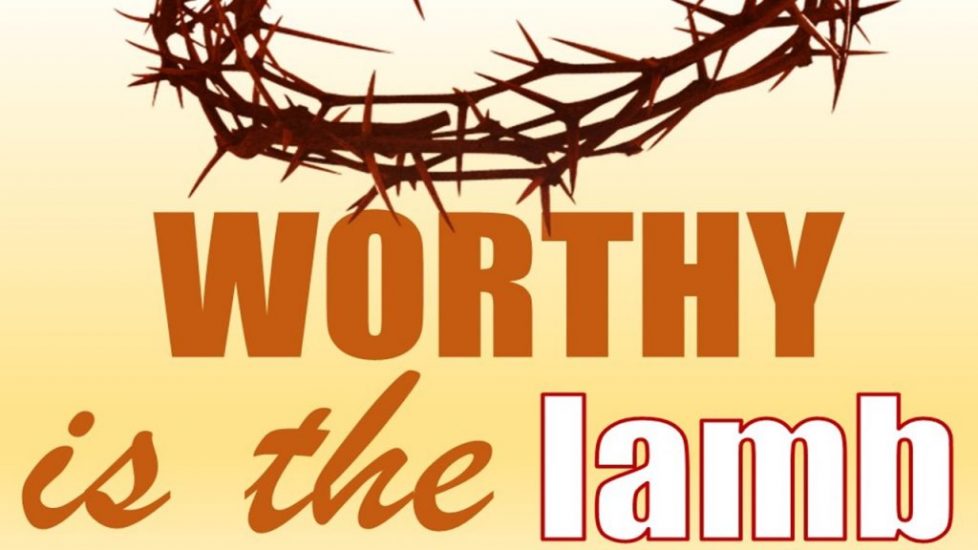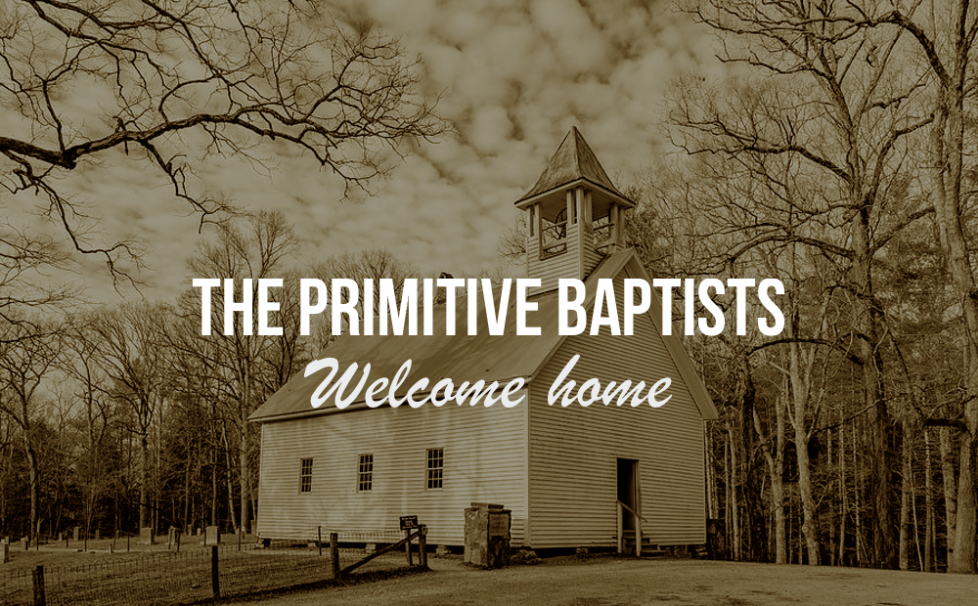Bible Studies in the New Testament Church

Bible Studies in the New Testament Church
by Elder Marty Smith
 [This article by Elder Smith, that first appeared in primitivebaptistsermons.org, addresses the purpose and the need for Bible Studies in our churches.]
[This article by Elder Smith, that first appeared in primitivebaptistsermons.org, addresses the purpose and the need for Bible Studies in our churches.]
The design of the Church of the Lord Jesus Christ, as set forth in the New Testament scriptures, is flawless. Those scriptures completely furnish disciples in every age and every culture to worship their Savior in a manner pleasing to Him and edifying to them, and no human innovation is required or desired. Additions to the New Testament pattern, or subtractions from it, are detrimental.
The implementations of that flawless design by God’s children throughout the generations are, however, not perfect. Thoughtful disciples in each generation must frequently examine themselves, comparing their implementation of worship, and service to God, to the perfect pattern set forth in scripture. With that comparison in mind, let’s examine the issue of Bible Studies. Are Bible Studies in accordance with the New Testament, or not?
As one reads through the four gospels and the book of Acts, it is clear that the Lord Jesus Christ used preaching, and He used dialog, to instruct His disciples. Consider these examples of dialog:
- [Matthew 16:13-16] When Jesus came into the coasts of Caesarea Philippi, he asked his disciples, saying, Whom do men say that I the Son of man am? And they said, Some say that thou art John the Baptist: some, Elias; and others, Jeremias, or one of the prophets. He saith unto them, But whom say ye that I am? And Simon Peter answered and said, Thou art the Christ, the Son of the living God.
- [Mark 4:10-12] And when he was alone, they that were about him with the twelve asked of him the parable. And he said unto them, Unto you it is given to know the mystery of the kingdom of God: but unto them that are without, all these things are done in parables: That seeing they may see, and not perceive; and hearing they may hear, and not understand; lest at any time they should be converted, and their sins should be forgiven them.
- [Luke 9:46-50] Then there arose a reasoning among them, which of them should be greatest. And Jesus, perceiving the thought of their heart, took a child, and set him by him, And said unto them, Whosoever shall receive this child in my name receiveth me: and whosoever shall receive me receiveth him that sent me: for he that is least among you all, the same shall be great. And John answered and said, Master, we saw one casting out devils in thy name; and we forbad him, because he followeth not with us. And Jesus said unto him, Forbid him not: for he that is not against us is for us.
- [John 14:5-9] Thomas saith unto him, Lord, we know not whither thou goest; and how can we know the way? Jesus saith unto him, I am the way, the truth, and the life: no man cometh unto the Father, but by me. If ye had known me, ye should have known my Father also: and from henceforth ye know him, and have seen him. Philip saith unto him, Lord, shew us the Father, and it sufficeth us. Jesus saith unto him, Have I been so long time with you, and yet hast thou not known me, Philip? he that hath seen me hath seen the Father; and how sayest thou then, Shew us the Father?
Notice that the Lord did not merely make Himself available for dialog; He provoked dialog. This pattern of dialog did not end with Jesus Christ instructing His apostles, but continued as His apostles taught others:
- [Acts 2:37-38] Now when they heard this, they were pricked in their heart, and said unto Peter and to the rest of the apostles, Men and brethren, what shall we do? Peter said unto them, Repent, and be baptized every one of you in the name of Jesus Christ for the remission of sins, and ye shall receive the gift of the Holy Ghost.
- [Acts 19:9-10] But when divers were hardened, and believed not, but spake evil of that way before the multitude, he departed from them, and separated the disciples, disputing daily in the school of one Tyrannus. And this continued by the space of two years; so that all they which dwelt in Asia heard the word of the Lord Jesus, both Jews and Greeks.
In Acts 17:10-11, the Bible gives an example of what God considers noble:
- And the brethren immediately sent away Paul and Silas by night unto Berea: who coming thither went into the synagogue of the Jews. These were more noble than those in Thessalonica, in that they received the word with all readiness of mind, and searched the scriptures daily, whether those things were so.
It is highly unlikely that the Bereans each went home and opened their copies of the scriptures. Very few people could afford to own books, which consisted of scroll collections. More than likely, the Bereans met at the synagogue and opened the scrolls of scripture there, and verified the preaching they had heard earlier from the apostle Paul. It is very likely that this was a Bible Study. It is almost beyond question that the example in Acts 19:9-10 was a Bible Study.
A few generations ago, many churches were able to follow the scriptural pattern of dialog around the written word of God informally. In an agricultural area, or small town environment, brothers and sisters might all go back to a home to sit on the porch and discuss scripture. Or they might gather by the fireside and have such a discussion. These were very positive activities. Designating a time and place to discuss scripture, even on a regularly scheduled basis, in no way detracts from the scriptural aspects of such activities. A scriptural practice which is good in and of itself does not become bad because of increased planning.
The church does not need new methods or new solutions. But the church also does not need to abandon activities that were clearly a part of New Testament worship to the Lord, if she is able to accomplish them. The need to have dialog to instruct disciples in God’s word did not pass away with the cessation of signs and wonder, nor did it come to a stop with the last apostle.
It is possible sometimes that the Lord’s people need to break up some of their own fallow ground. Such fallow ground is not ground that belongs to someone else, or ground that is unfit for cultivation; it is simply ground that could and should be cultivated, but has not been used for a while. The Lord gave a commandment for Israel and Judah to repent and break up their fallow ground shortly before the fall of Samaria (Hosea 10:12) and before the fall of Jerusalem (Jeremiah 4:3). They needed to review God’s word and see what new things they had added, and discontinue them – and they needed to see what old things they had left off, and start doing them again. They needed to ask for the “old ways” and walk therein.
One example of such “fallow ground” is found in Nehemiah 8:13-17. In this account, the people of Jerusalem had come out of captivity and finally rebuilt the walls of the city. As they began to hear the word of God, they at first grieved, but then were comforted by God’s mercy. As they continued looking into God’s word, they discovered that God had commanded them, during the feast of tabernacles, to dwell in booths. Sure enough, this is found in Leviticus 23:39-43. This was something Israel had not practiced since the days of Joshua – nearly one thousand years before Nehemiah! They had not practiced it in the days of the judges, in the days of the kings, or in the seventy years of captivity. When they discovered this commandment, and once again began obeying it, there was great gladness in Jerusalem. If the children of Israel could miss one of God’s clear commandments about worship over a period of a thousand years, it may be possible that the church could miss a New Testament example for a generation or two. God’s mercy is, however, great, and allows space for repentance.
Here are some objections often posed against Bible Studies, and answers to them:
- They are something new added to worship!
Answer: Clearly they are not, since they are in the New Testament. We may not have had them in 1950 AD, but the church of Jesus Christ had them in 50 AD.
- They are the same as Sunday Schools!
Answer: Says who? Sunday Schools have division according to age or gender. Sunday Schools often have unqualified teachers, and externally developed curricula and materials. Bible Studies need have none of these unscriptural characteristics.
- They will lead to Sunday Schools!
Answer: Says who? Is this “lead to” assertion a scripture, or a private prophecy? If there are any examples where a Bible Study led to a Sunday School, it is not well known – nor is it a foregone conclusion that one must lead to the other in the future.
- Preaching is the power of God unto salvation, so why have Bible Studies?
Answer: Because Jesus Christ and His apostles had them. Either Paul considered Bible Studies to be included in his definition of “preaching” or else he conducted daily dialog in the school of Tyrannus (see Acts 19:9-10) because the Lord showed him that the church needed something in addition to preaching.
Instruction in the gospel through dialog is clearly a part of the New Testament pattern. Bible Studies are a good way to continue such dialog. May the church practice and enjoy this New Testament activity, to the glory of the name of the Lord Jesus Christ.





